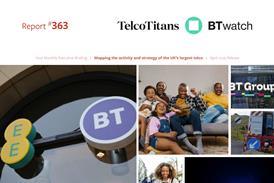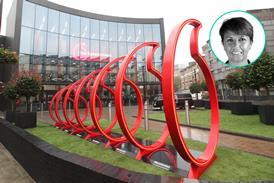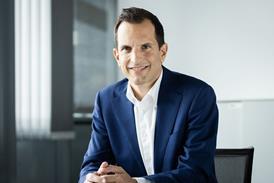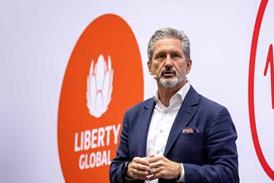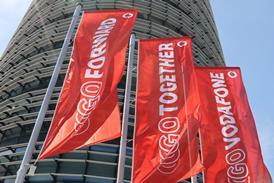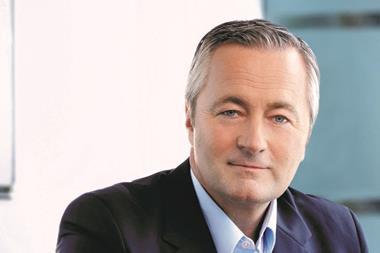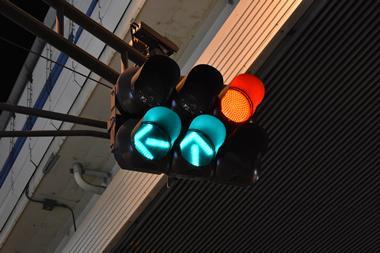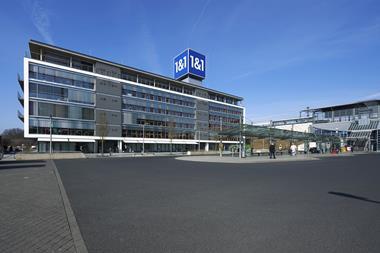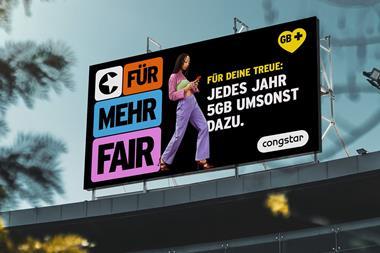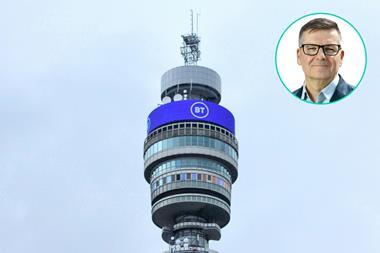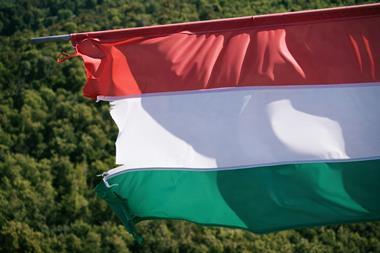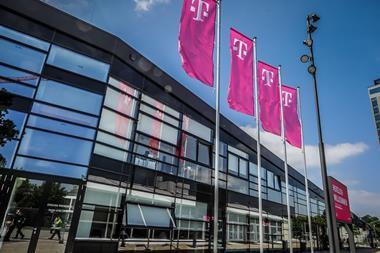- Spectrum bill tops €2bn despite huge misgivings about auction rules.
- Wössner complains of “bitter aftertaste” and investment “dampener”.
- Group urges regulators to make 5G site acquisition easier.
- MNO legal action against BNetzA still on cards.
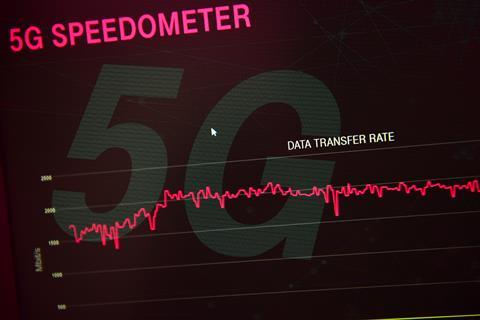
In a marathon 5G auction lasting nearly three months and involving 497 rounds of bidding, Deutsche Telekom (DT) emerged as the biggest spender. The Group shelled out €2.17bn on 2GHz and 3.6GHz licence concessions, which accounted for around a third of the auction’s total proceeds (€6.55bn).
Operators in Germany now have an extra 420MHz to play with as they prepare for commercial 5G rollout. DT snagged 130MHz (see tables and chart).
Drillisch, currently a mobile virtual network operator (MVNO), spent more than €1bn on acquiring spectrum and will become Germany’s fourth mobile network operator (MNO).
The total amount raised far exceeded most analyst expectations, which typically hovered between €3bn and €5bn. German Minister of Finance Olaf Scholz was reportedly counting on adding between €4bn and €5bn to government coffers before the auction started.
Regrets, we’ve got a few
Operator recriminations, already brewing as the auction dragged on and bids crept upwards, started immediately after the hammer fell on the last round. “The auction leaves a bitter aftertaste”, said Dirk Wössner, Chief Executive (CEO) of Telekom Deutschland (TDE). “The result is a dampener on our network build-out. Spectrum, again, is much more expensive in Germany than elsewhere”, he added.
Hannes Ametsreiter, CEO of Vodafone Germany (VfD), called the auction results “catastrophic”. He thought Germany was “losing valuable time” in digital development, and that the country will not be among the first in Europe to launch 5G services. Ametsreiter suggested provocatively that the state should return revenue from the 5G auction, in the form of a subsidy, to help operators with 5G rollout.
Wössner noted dejectedly that “one could have built approximately 50,000 new mobile sites and close many white spots” with the auction proceeds. He did add, however, that TDE got the spectrum it wanted.
“ After a long auction, clarity now prevails. Now we will build a first-class 5G network for Germany. Our customers can look forward to this. ”
– Wössner.
| Operator | Spectrum acquired (2GHz) | Outlay (3.6GHz) | Spectrum acquired (3.6GHz) | Outlay (3.6GHz) | Total outlay |
|---|---|---|---|---|---|
| Source: BNetzA. | |||||
|
DT |
2×20MHz |
€851.5m |
90MHz |
€1.32bn |
€2.17bn |
|
Vodafone |
2×20MHz |
€806.5m |
90MHz |
€1.07bn |
€1.88bn |
|
Telefónica |
2×10MHz |
€381.1m |
70MHz |
€1.04bn |
€1.42bn |
|
Drillisch |
2×10MHz |
€335m |
50MHz |
€735m |
€1.07bn |
|
Total |
120MHz |
€2.37bn |
300MHz |
€4.18bn |
€6.55bn |
Site locations and rural cooperation
Aside from higher-than-anticipated spectrum costs, which might affect the pace of 5G investment, Wössner used an interview with Handelsblatt to again highlight regulatory blockers to network rollout. Building guidelines for antenna locations were not yet finalised, he noted. “I see this as a national task. The network operators cannot do that alone”, said Wössner. He indicated that the slow pace of site verification will prove a drag on 5G rollout and does not expect TDE to offer 5G services to a “mass market” until the second half of 2020, when 5G-enabled devices should become more readily available.
Wössner did not rule out 5G cooperation with other MNOs to tackle rural coverage shortfalls, including a potential tie-up with Drillisch as it morphs from an MVNO into an MNO. Wössner did not elaborate on how this cooperation might pan out, other than to say that any arrangement needed to be “fair”.
Despite concerns about spectrum costs, Germany remains at the forefront of DT’s 5G efforts in Europe. TDE is conducting trials of pre-commercial, non-standalone 5G New Radio antennae in Berlin, the Port of Hamburg, and the city of Darmstadt. Embattled Huawei Technologies (see separate report) is heavily involved in the Berlin 5G trials, while Nokia is prominent among TDE’s partners in Hamburg. Ericsson is providing the kit for 5G-antenna field tests in Darmstadt.
Headmaster Homann
Jochen Homann, President of regulator Bundesnetzagentur (BNetzA), apparently thought the auction was a resounding success. He seemed particularly pleased that an MNO newcomer, in the shape of Drillisch, had managed to acquire spectrum and “promote competition”. This vindicated the controversial auction rules, he suggested. “The end of the auction fires the starting gun for 5G in Germany”, he said.
Homann added in a wary tone, somewhat reminiscent of a strict headmaster suspicious about the self-discipline of his charges, that it was “now up to the companies to put the spectrum to use quickly and to fulfil their coverage obligations”. When auction bids were rising in May 2019, Homann downplayed any suggestion that network investment might be impaired in any way. He expressed the view that the operators were well aware of the auction’s conditions and had positioned themselves accordingly.
See you in court, BNetzA
Markus Haas, CEO of Telefónica Deutschland, drew attention once again to ongoing legal action against the regulator. Like MNO rivals, Haas was unimpressed by the auction outcome. “We must learn from our mistakes, and from other top 5G nations that are a good nose-length ahead of us. We have blown this chance. The money is going to the Finance Ministry and not into building networks”, he said.
TDE previously joined Telefónica and VfD in filing an injunction – which ultimately failed – intended to slam the brakes on the 5G auction timetable (Deutsche Telekomwatch, #81). Prior to that, each of the three MNOs filed separate lawsuits against BNetzA over the auction rules (Deutsche Telekomwatch, #79). Their grievances revolve around coverage obligations, roaming rules, and what they see as unfair newcomer advantages (see table).
| BNetzA’s auction conditions | Kopf commentary * | |
|---|---|---|
|
Note: * Edited by Deutsche Telekomwatch. Sources: DT; various. |
||
|
Coverage obligations |
|
Ambitious coverage requirements cannot be met with short-wave frequencies available in the current auction. These are suitable only for metropolitan areas. Wide area coverage is only possible with long-wave frequencies, which were auctioned back in 2010 and 2015. Imposing subsequent coverage requirements on spectrum that was already purchased at a high price is wrong.
If the BNetzA wants to ensure 5G blanket coverage “in every barn”, a holistic approach is required. The BNetzA and relevant government ministries should work together with infrastructure providers, such as railway and road authorities, as well as mobile operators, and make available appropriate spectrum for wide area coverage. There should be targeted funding in rural regions where expansion is economically untenable.
Cell-site acquisition is also a problem that needs to be addressed. There is a myriad of bureaucratically construed regulations, understaffing in public administration, and citizens’ initiatives that oppose the local installation of cellular antennae, which all throw a spanner into the works. To build new antennae, we need faster, streamlined procedures. Rather than posturing by the BNA, we need a concerted effort to get things done. |
|
Roaming and wholesale obligations |
|
Roaming is fine, so long as MNOs can enter into agreements on a voluntary basis. If the BNetzA can officially intervene in roaming negotiations, and even mandate agreements granting access to existing network infrastructure, this will undermine commercial agreements and favour free riders. This is to the detriment of companies that actually invest.
Although resellers set themselves apart through their marketing, they do not make any contribution towards network expansion. As such, regulatory intervention to favour service providers is not justified. Voluntary service agreements have proved their worth in the past and should be kept in the future. German resellers already have the highest market share in Europe, at 23%. |
|
Unfair newcomer advantages |
|
There are many good reasons to collaborate in network build-out, particularly in rural areas. However, granting access, which is neither voluntary nor done on a commercial basis, unduly favours resellers (see above). |
Empowered BNetzA reminds operators of coverage responsibilities
Potentially exacerbating the financial blow of the 5G auction are signs the BNetzA is stepping up pressure on Germany’s mobile operators to do more on network rollout, possibly in a bid to head off moves by operators to skip on requirements to offset the high sell-off outlay.
TDE, Telefónica, and Vodafone executives were said to have been summoned to a meeting with the regulator to explain mobile data coverage gaps. The meeting was scheduled for 24 June 2019, according to the Rheinische Post newspaper.
A subsequent Handelsblatt report suggested the BNetzA was considering significantly increasing fines for mobile operators that miss coverage targets mandated in their licences. The move reportedly comes at the behest of the government, which is preparing to introduce legislation enabling harsher penalties to be handed out to operators.
While the conversations do not appear exclusively 5G-focused, coverage-led terms and conditions are one of the key issues that have contributed to controversy around the 5G auction (see table). Particularly contentious have been rollout obligations attached to 3.6GHz licences that are not natural bearers for service propagation.




